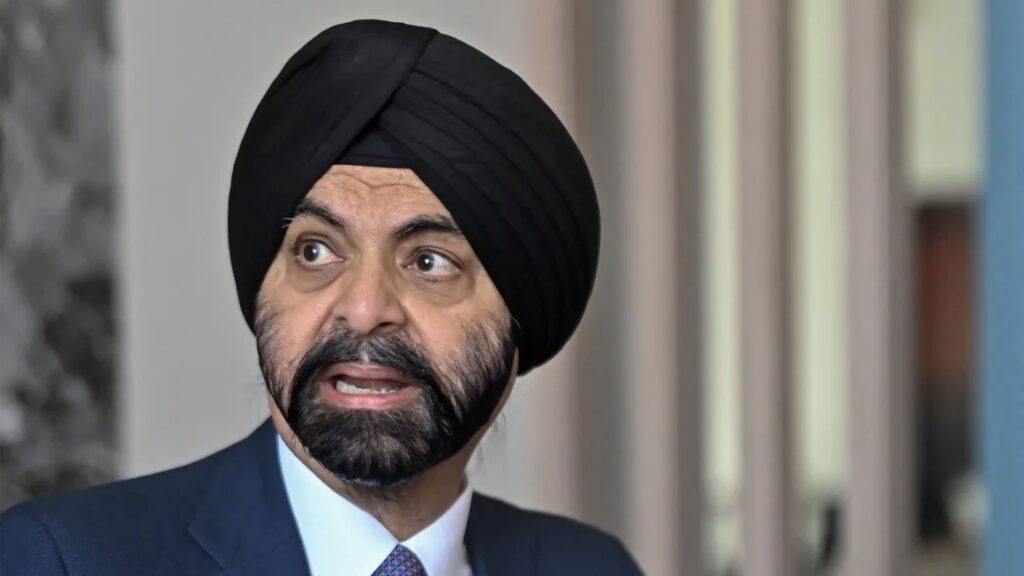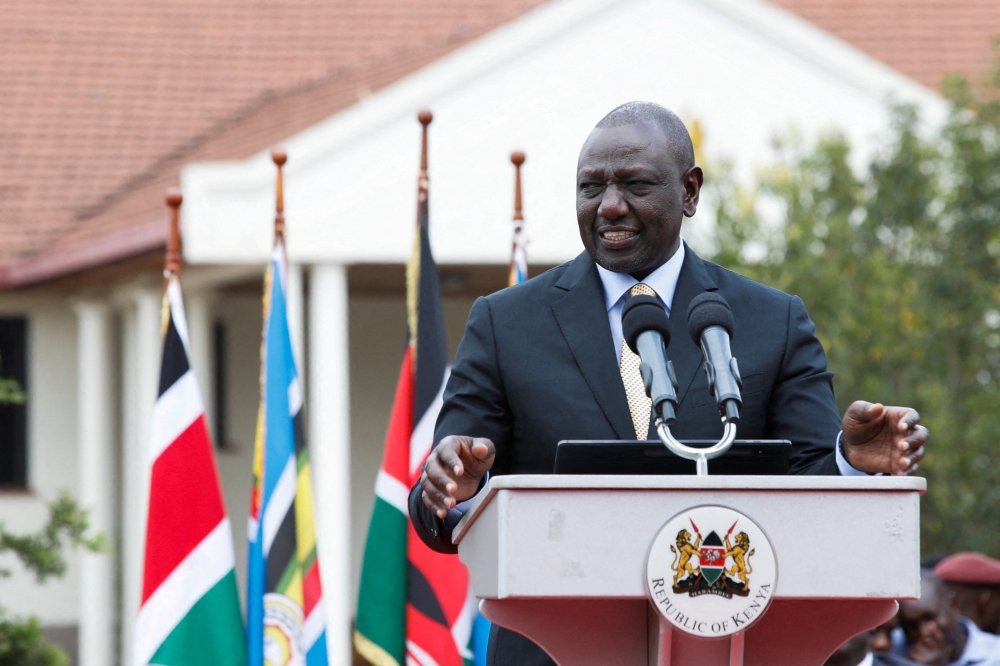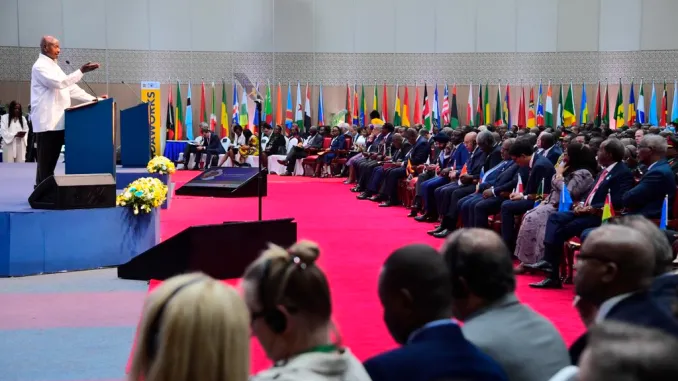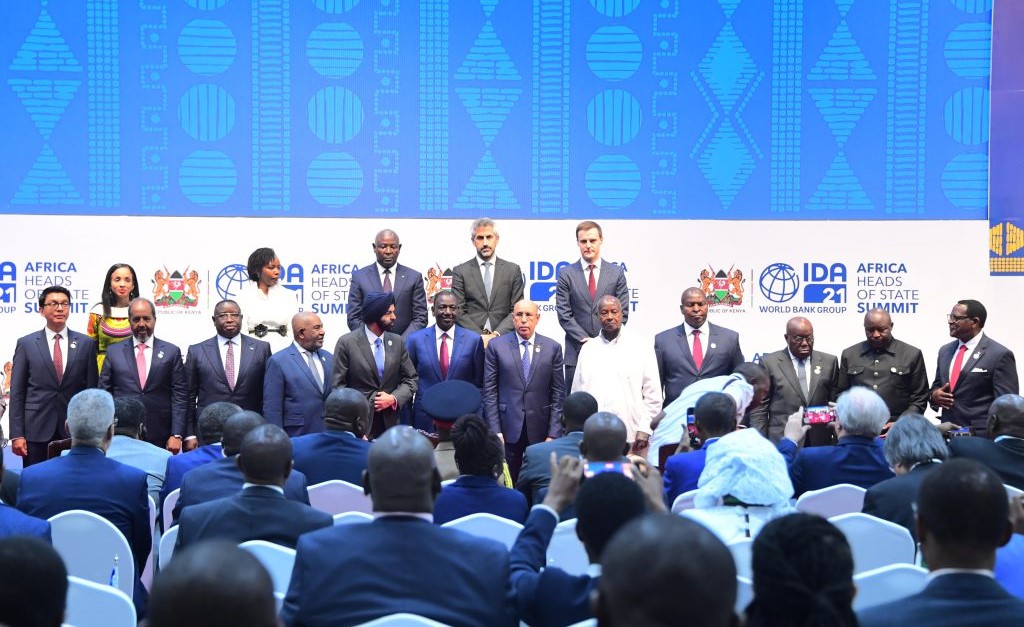The World Bank, an international financial institution that provide loans and grants to the governments of low-and-middle income countries for the purpose of pursuing their capital projects, has asked the world’s powerful and rich countries honour donation requests to African nations for the forthcoming International Development Association (IDA) indaba to be held in Japan this December.
The Bretton Woods global lending group, World bank, president, Ajay Banga told an African heads of state indaba in Nairobi, Kenya earlier this week that he expects donor countries to meet a request by African leaders to make record contributions to a low-interest facility for developing nations, emphasising these were not handouts but investments in the future.
African heads of state on Monday called upon the wealthy nations to help raise at least $120 billion for the International Development Association (IDA) at a conference to be held in Japan in December.

That would be a record for IDA, which offers long-term loans to developing nations and operates on a three-year cycle. The last round of fund-raising in 2021 raised $93 billion.
The target amount of $120 billion means donors will have to put up about $30 billion since the World Bank can borrow $3 for every dollar raised.
“There is no doubt that all the donor countries have their own challenges and their own fiscal responsibilities. But I think they all value the effect of contributing to IDA,” Banga told Reuters News in an interview on Monday.
Boosting the contributions
African leaders at the summit rallied together to champion for reform of the international financial system to allow countries in the continent that are vulnerable to climate calamities and global financial shocks to access more funding from rich nations and multilateral development institutions.
In his remarks, the conference host, Kenyan President William Ruto called on richer countries to boost contributions to a World Bank fund to help African development and the fight against climate change.
President Ruto’s comments came at a summit as African leaders and the World Bank gathered in the Kenyan capital, Nairobi to discuss building financial support for the continent of 1.2 billion people.

Ruto urged donors to the World Bank’s International Development Association (IDA) to raise their contributions to at least $120 billion in 2024, from $93 billion raised in 2021.
Said Ruto: “As many African and other developing nations face severe debt crises, this financial strain hampers our efforts to combat climate change, transition to a low-carbon economy, and adequately fund essential sectors like education, health, and social protection.”
The African leaders were discussing on finding solutions on how the IDA could help improve services such as energy and health care across Africa.
“The rising cost of living, increasing commodity prices, and supply chain disruptions severely impact our food security, healthcare systems, and overall preparedness for and response to crises,” Ruto said.
African nations account for more than half of the 75 that tap the IDA facility.
Many are grappling with heavy debt burdens and climate disasters but struggle to access affordable financing on international markets.
That makes access to IDA loans crucial, the African leaders said.
Cutting burdensome rules
The Nairobi IDA summit comes as the sub-Saharan Africa is battling heavy rains and flooding that have claimed the lives of scores of people and displaced millions of people in recent times.
Africa is responsible for the smallest amount of carbon emissions but is hit disproportionately hard by droughts, flooding, storms, and heatwaves.
Donors to the IDA fund meet every three years to “to replenish IDA’s resources and review its policy framework,” the World Bank says on its website.
The IDA helps developing nations in Africa and other parts of the world through grants and loans with low interest rates.
World Bank president Ajay Banga told the meeting there was a need to act “with urgency” and said that the IDA, the World Bank, governments, and the private sector should do more.
During the summit session, President Museveni delivered a powerful and insightful remarks, emphasising the importance of socio-economic transformation and the need for loans that propel prosperity.

“I was happy to hear the president of the World Bank talking about prosperity instead of profiteering,” he said.
Museveni further attributed the current crisis in Africa to persistent philosophical, ideological, and strategic economic mistakes that have prevailed since the 1960s and advocated for a paradigm shift towards socio-economic transformation and the need to transcend mere quantitative growth and focus on achieving qualitative change.
“In order for the private sector to grow, it needs low-cost of production in transport, electricity and low-cost funding for manufacturing,” he explained.
“We are working to make IDA more efficient and able to deliver faster by cutting burdensome rules, requirements, and redundancies,” he added.
Beyond pronouncements, the summit witnessed the birth of a significant partnership—a coalition uniting civil society, foundations, the private sector, and young people. The new coalition will champion a robust and ambitious replenishment of IDA’s resources, fueling Africa’s development engine.
A post-summit communique detailed leaders’ unwavering commitment to strengthen governance, unlock private sector potential for job creation, mobilize domestic resources, and deliver on climate change promises. Additionally, they prioritized increased energy and digital access, alongside enhanced resilience to climate change and conflict.
The Government of Kenya and the World Bank Group co-hosted the summit, and each emphasized the critical role of both IDA— the World Bank Group’s fund focused on those most in need—and the global community in supporting Africa’s aspirations.

The International Development Association (IDA) is the part of the World Bank that helps the low-income countries. Established in 1960, IDA complements the World Bank’s original lending arm—the International Bank for Reconstruction and Development (IBRD).
IDA’s grants and low-interest loans help countries invest in their futures, improve lives, and create safer, more prosperous communities around the world. IDA is one of the largest sources of assistance for the world’s 75 low-income countries and is the single largest source of donor funds for basic social services in these countries.
IDA lends money on concessional terms. This means that IDA credits have a zero or very low interest charge and repayments are stretched over 30 to 40 years.
More than half of IDA countries receive all, or half, of their IDA resources on grant terms, which carry no repayments at all. These grants are targeted to the low-income countries at higher risk of debt distress.
IDA has historically been funded largely by contributions from the governments of its member countries. Donors meet every three years to replenish IDA resources and review its policy framework.
The most recent replenishment of IDA’s resources, the twentieth (IDA20), was finalized in December 2021, resulting in a historic $93 billion financing package for IDA countries for fiscal years 2022-2025.
“In order for the private sector to grow, it needs low-cost of production in transport, electricity and low-cost funding for manufacturing.”
Yoweri Museveni
President of the Republic of Uganda



